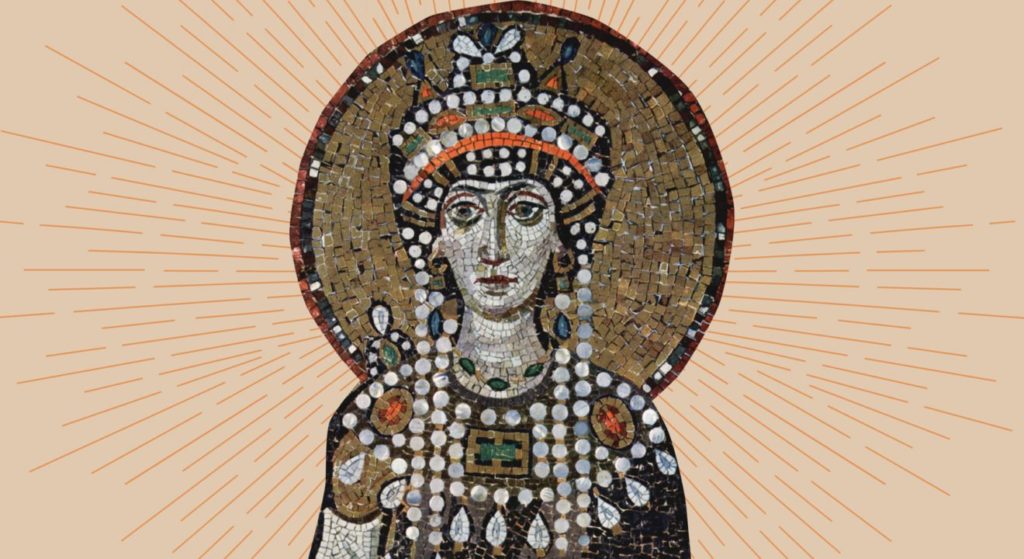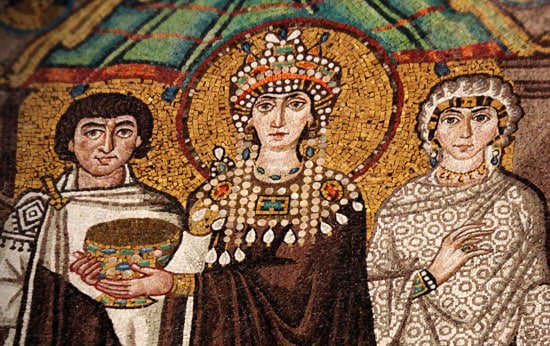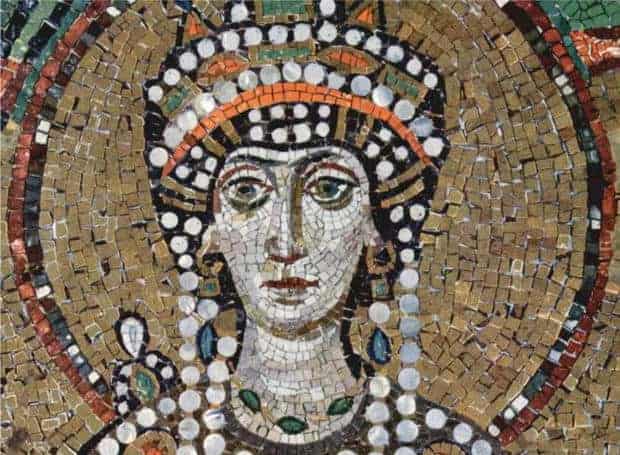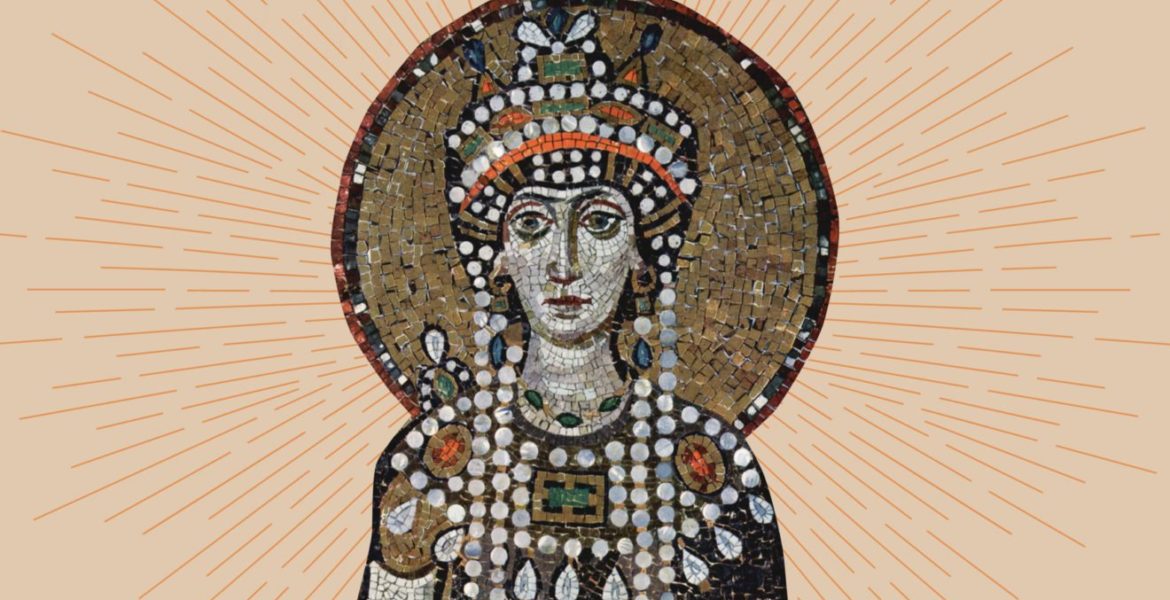Empress Theodora is referred to as the most powerful woman in Byzantine history.

She was the wife of Justinian I, who was crowned Emperor of the Byzantine Empire in 527 AD. As his partner, she ruled by his side, and her intelligence helped to advance the Empire.
Her wisdom and knowledge made her Justinian’s most trusted adviser and enabled her to use the power and influence of her office to promote religious and social policies favouring her interests.
The exact place of her birth has not been agreed upon. However, most historians say she was born on the island of Crete in Greece. She was raised as the daughter of a bear trainer who worked at the Hippodrome (a huge stadium-like circus), in Constantinople. She worked there as a mime and later as a full-time actress. At the time, acting was not a highly esteemed occupation, especially for women, so the term 'actress' was synonymous with 'prostitute'. While on stage, she was remembered for her daring entertainment skills. Off stage, however, she lived a normal youthful life and was most remembered for her wild ways.

At the age of 16, she travelled to northern Africa as the companion of an official. She stayed there for four years before returning to Constantinople. She stopped by Alexandria, the capital of Egypt and adopted Monophysitism, a form of Christianity here. On conversion to Monophysitism, she gave up her former lifestyle and, upon reaching Constantinople in 522, settled down as a wool spinner in a house near the palace of the Emperor. While in this humble lifestyle, at the age of 20, she drew the attention of Justinian, then a government official.
Theodora was beautiful and witty, which many say is how she won Justinian's love so much that he appealed against an old Roman law forbidding officials from marrying actresses to marry her. Justinian and Theodora were married in 525. In 527, Justin, the emperor of Byzantium, and Justinian's father died. The couple assumed control of the Empire and were crowned Emperor and Empress on 4th April of that same year. They ruled unofficially as joint monarchs, with Justinian allowing Theodora to share his throne and actively participate in decision-making.

Perhaps the Nika revolt was the most significant event during Empress Theodora's rule. Two rival political groups started a riot at the Hippodrome during this event. They set many public buildings on fire and proclaimed a new emperor. Justinian and his officials, unable to control the crowd, prepared to flee, but Theodora spoke up and gave a moving speech about the greater significance of the life of someone who died as a ruler over that of someone who lived but was nothing. Her determined speech convinced Justinian and his officials, and they attacked the Hippodrome, killing over 30,000 rebels and emerging victorious. Historians agree that Theodora's courage and determination saved Justinian's empire.
Throughout the rest of her life, Theodora and Justinian transformed the city of Constantinople, building it into a city that for many centuries was known as one of the most wonderful cities in the world. They built aqueducts, bridges, and more than 25 churches, the most significant being the Hagia Sophia - the 'Church of Holy Wisdom', the largest Greek Orthodox Christian Church for over 1000 years.
To many women, Theodora may well be considered a noble pioneer of the women's liberation movement. She passed on laws prohibiting forced prostitution and established homes for prostitutes, passed rights that granted women more rights in divorce cases, instituted the death penalty for rape and established laws allowing women to own and inherit property. She also provided safe shelter for Monophysite leaders who faced opposition from the majority of Orthodox Christians, even though her husband Justinian was an Orthodox Christian.
Empress Theodora died on 28th June 548. Her body was buried in the Church of the Holy Apostle, one of the churches that she and Justinian had built in Constantinople. Beautiful mosaics in Empress Theodora's remembrance exist today at the Church of San Vitale at Ravenna in Northern Italy. Even after her death, her spirit lived on, and in this way, she was able to have an influence on the Empire. Through what she had begun, Justinian was able to bring harmony between the Monophysites and the Orthodox Christians, and the status of women in the Byzantine Empire was elevated high above that of the women in the Middle East and Europe.
*Source: thenagain.com


